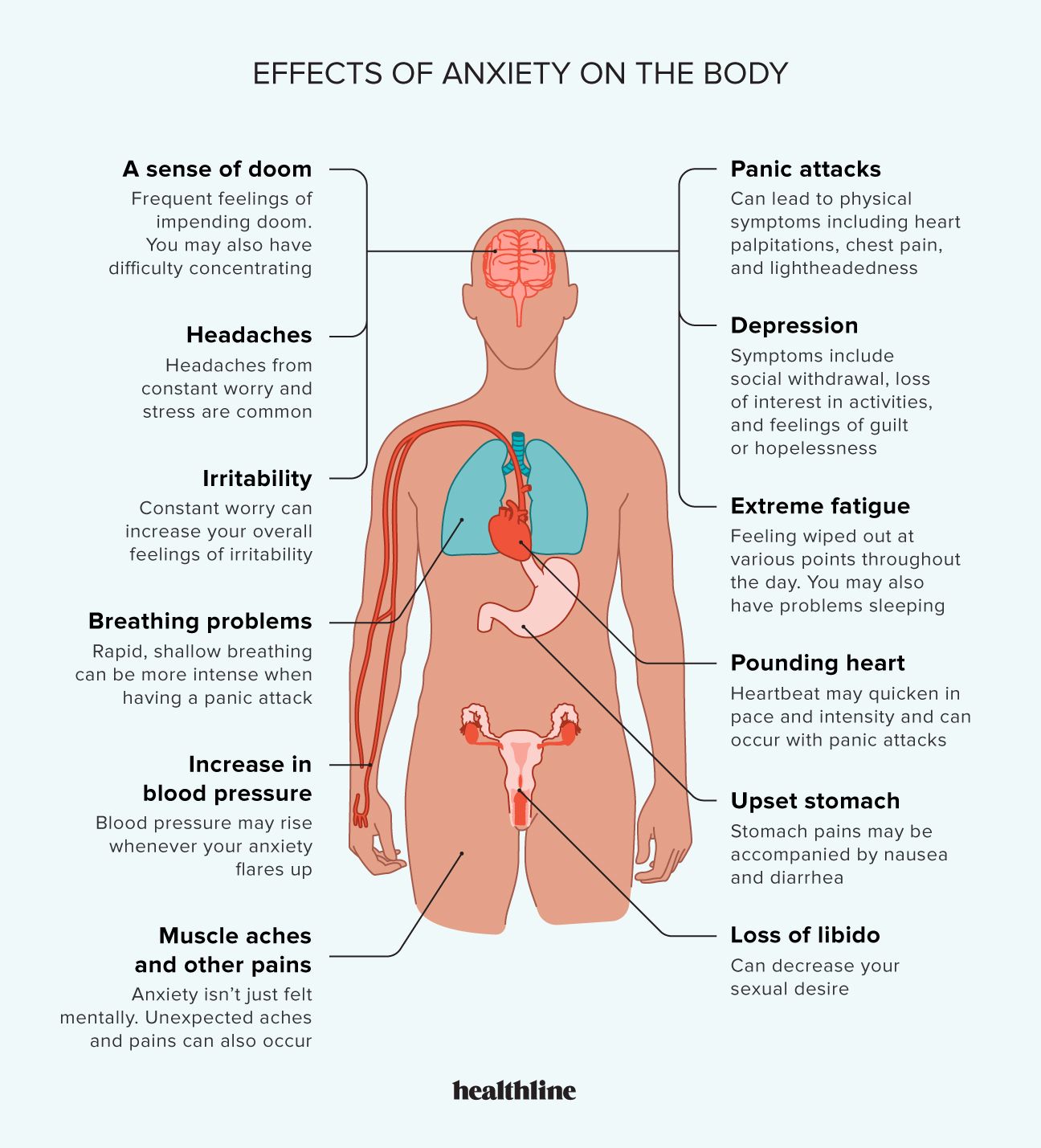How Avoidance of Consequences Deepens Anxiety for Scam Victims
Understanding How Impactful Avoidance is on the Psychology of Scam Victims in Promoting Anxiety
Primary Category: Scam Victim Recovery Psychology
Authors:
• Vianey Gonzalez B.Sc(Psych) – Licensed Psychologist, Specialty in Crime Victim Trauma Therapy, Neuropsychologist, Certified Deception Professional, Psychology Advisory Panel & Director of the Society of Citizens Against Relationship Scams Inc.
• Tim McGuinness, Ph.D., DFin, MCPO, MAnth – Anthropologist, Scientist, Polymath, Director of the Society of Citizens Against Relationship Scams Inc.
About This Article
Scam victims often use avoidance to cope with the emotional and psychological aftermath of their experience, leading to increased anxiety and hindering recovery.
Avoidance behaviors can include steering clear of financial and legal responsibilities, withdrawing from social interactions, and neglecting emotional healing. Victims may also avoid educating themselves about scams and their psychological impacts, which prevents them from understanding their trauma and protecting themselves in the future.
This avoidance reinforces anxiety by increasing rumination, prolonging stress, and creating a cycle of avoidance reinforcement. Exposure therapy, gradual confrontation of fears, professional help, and support groups are essential for breaking this cycle and promoting recovery.
Note: This article is intended for informational purposes and does not replace professional medical advice. If you are experiencing distress, please consult a qualified mental health professional.

Avoidance and Anxiety: The Post-Scam Struggle for Victims
Scam victims often face significant emotional and psychological challenges long after the scam has ended. One of the most common negative coping mechanisms they adopt is avoidance. This involves steering clear of anything that reminds them of the traumatic experience, including the responsibilities and consequences associated with being a scam victim. While avoidance might provide temporary relief, it typically leads to increased anxiety and hinders recovery.
The Role of Avoidance in Scam Victims’ Lives
After falling victim to a scam, individuals may experience intense feelings of shame, guilt, and embarrassment. These emotions can be overwhelming, prompting the victim to avoid thinking about the scam or dealing with its aftermath. This avoidance can manifest in various ways:
Avoiding Financial and Legal Responsibilities: Scam victims often delay addressing financial losses or legal issues resulting from the scam. They might avoid checking their bank statements, contacting financial institutions, or reporting the scam to authorities. This procrastination can lead to worsening financial conditions and legal complications.
Evading Social Interactions: Victims might withdraw from social interactions to avoid explaining their situation to friends and family. The fear of judgment and ridicule can make them isolate themselves, which can lead to loneliness and depression.
Neglecting Emotional Healing: Many victims avoid seeking professional help or participating in support groups because they are not ready to confront their feelings. They might convince themselves that they can handle the situation alone or that their feelings are not valid.
Avoiding Education and Learning About Scams: Victims often avoid educating themselves about scams and their psychological effects. This avoidance can prevent them from gaining a better understanding of what happened and how to protect themselves in the future. It can also hinder their ability to process the trauma, as they remain ignorant of the common tactics used by scammers and the typical emotional responses of victims.
How Avoidance Leads to Anxiety
While avoidance might seem like a way to manage stress, it actually reinforces and escalates anxiety over time. Here’s how:
Increased Rumination: Avoiding the problem does not make it disappear. Instead, it often leads to increased rumination, where victims constantly think about the scam in a negative light. This repetitive thinking can intensify feelings of helplessness and anxiety.
Prolonged Stress: By not addressing the scam’s consequences, victims remain in a state of chronic stress. This ongoing stress can have severe impacts on mental health, leading to disorders like anxiety and depression.
Avoidance Reinforcement: The more a person avoids a problem, the more daunting it becomes. This avoidance behavior is reinforced because the immediate relief it provides makes the person more likely to avoid the problem in the future. This cycle can make it increasingly difficult for victims to face their issues.
Anxiety and Avoidance: How Avoidance Provides Temporary Relief from Anxiety
The Comfort of Avoidance
When faced with situations that provoke anxiety, many individuals resort to avoidance as a coping mechanism. Avoidance can be as simple as steering clear of specific places, people, or activities that trigger anxiety. This strategy provides immediate relief by removing the source of distress, offering a temporary sense of comfort and safety.
Why Avoidance Feels Good
Immediate Reduction in Anxiety: Avoiding anxiety-inducing situations reduces immediate feelings of stress and discomfort. For example, a person with social anxiety might feel an instant sense of relief when they decide to skip a social event.
Perceived Control: By avoiding certain situations, individuals feel a sense of control over their environment. This control is comforting because it allows them to manage their anxiety on their own terms.
Short-Term Stress Reduction: Avoidance helps to bypass the anticipatory anxiety that can often be worse than the situation itself. For instance, someone with a fear of flying might avoid air travel altogether, thereby eliminating the days or weeks of dread leading up to a flight.
The Downside of Avoidance
While avoidance can provide temporary relief, it often leads to long-term consequences that exacerbate anxiety.
Reinforcement of Fear: Avoidance reinforces the fear associated with the anxiety-provoking situation. By not facing the situation, the person never gets the opportunity to disprove their catastrophic thoughts and fears.
Increased Anxiety Over Time: Over time, avoidance can lead to increased anxiety. As individuals avoid more situations, their world becomes smaller and more restrictive, leading to a heightened sense of vulnerability.
Impact on Daily Life: Chronic avoidance can interfere with daily functioning and quality of life. It can prevent individuals from engaging in meaningful activities, achieving personal goals, or forming and maintaining relationships.
Breaking the Cycle of Avoidance
Addressing avoidance requires a combination of strategies that can help individuals face their fears and reduce anxiety in the long run.
Exposure Therapy: A key component of cognitive-behavioral therapy (CBT), exposure therapy involves gradual and repeated exposure to the feared situation. This process helps individuals build confidence and reduce anxiety over time.
Mindfulness and Relaxation Techniques: Techniques such as mindfulness meditation, deep breathing exercises, and progressive muscle relaxation can help individuals manage their anxiety without resorting to avoidance.
Cognitive Restructuring: This involves identifying and challenging the irrational thoughts that contribute to anxiety. By changing their thinking patterns, individuals can reduce the power of their fears.
While avoidance can provide immediate relief from anxiety, it often leads to a cycle of increased fear and anxiety over time. By understanding the temporary nature of the comfort that avoidance provides, individuals can take steps to confront their fears and develop healthier coping mechanisms. Through exposure, mindfulness, and cognitive restructuring, it is possible to break the cycle of avoidance and achieve lasting anxiety relief.
Anxiety Isn’t Always the Right Name for What Scam Victims Feel
When discussing the emotional aftermath of a scam, the term “anxiety” frequently comes up. While anxiety is a common reaction, it may not fully capture the range of emotions and psychological states that scam victims experience. Here’s a closer look at why anxiety might not be the most accurate term and what other emotions might be at play.
Complex Emotional Landscape
Scam victims often go through a myriad of emotions that are intertwined and complex. These emotions can include:
Shame and Embarrassment: Many victims feel ashamed for having been deceived, which can be profoundly isolating. They might worry about others judging them for falling for the scam.
Anger and Betrayal: There is often significant anger towards the scammer and a sense of betrayal, especially if the scam involved a person the victim thought they could trust.
Guilt: Victims may feel guilty, questioning their judgment and blaming themselves for the financial or emotional losses incurred.
Loss and Grief: Just like other forms of trauma, scam victims can experience grief. This might be due to financial loss, loss of trust, or even the end of a relationship with someone they believed was real.
Psychological Impact Beyond Anxiety
Post-Traumatic Stress Disorder (PTSD): Some scam victims show symptoms of PTSD, especially if the scam was prolonged or particularly traumatic. Symptoms can include flashbacks, intrusive thoughts, and heightened vigilance.
Depression: The aftermath of a scam can lead to depression, characterized by a persistent feeling of sadness, loss of interest in activities, and even thoughts of hopelessness.
Identity Crisis: Victims often question their self-worth and identity, especially if they had a strong emotional connection to the scammer or invested significant trust and resources.
The Role of Avoidance
Avoidance behavior is a key factor that can exacerbate these emotions. Victims might avoid discussing the scam, seeking help, or educating themselves about scams due to the stigma and shame associated with being a victim. This avoidance can prevent them from addressing their emotions and lead to:
Escalating Anxiety: Avoidance can reinforce and increase anxiety over time. By not confronting their feelings and the reality of the scam, victims can develop a heightened state of worry and fear.
Chronic Stress: Ongoing avoidance can contribute to chronic stress, which has numerous negative impacts on physical and mental health.
Hindered Recovery: Avoidance of education and understanding about scams means victims miss out on learning how to protect themselves in the future and reduce the risk of being scammed again.
While anxiety is a significant component of what scam victims feel, it is only part of a broader emotional spectrum. Terms like shame, guilt, anger, depression, and PTSD may more accurately describe the full range of emotions experienced. Recognizing these varied emotional responses and understanding the detrimental role of avoidance can help in providing better support and recovery strategies for scam victims. Addressing these complex emotions through therapy, support groups, and educational resources is essential for healing and prevention of future victimization.
Anxiety and Catastrophizing Thoughts
Anxiety often leads to a mental process known as catastrophizing, where individuals anticipate the worst possible outcomes of a situation, regardless of its actual likelihood. This cognitive distortion can significantly impact one’s mental health, creating a cycle of fear and stress that is difficult to break.
Understanding Catastrophizing
Catastrophizing involves two key steps:
Predicting Disaster: Imagining that something bad will happen.
Exaggerating Consequences: Believing that if the bad thing happens, the consequences will be catastrophic and unmanageable.
How Anxiety Leads to Catastrophizing
Heightened Sensitivity to Threats: Anxiety makes individuals more alert to potential threats, even if they are minor or unlikely. This heightened sensitivity can cause a person to misinterpret ordinary situations as dangerous.
Overgeneralization: People with anxiety might take a single negative event and generalize it to mean that similar outcomes will happen in all related situations. For example, a scam victim might believe that they will always be deceived in future interactions, leading to an overwhelming sense of helplessness.
Lack of Control: Anxiety often stems from a perceived lack of control over life circumstances. This feeling can cause individuals to believe that any negative event will have devastating effects because they feel incapable of managing the situation.
Psychological Impact of Catastrophizing
Increased Stress and Anxiety: Catastrophizing exacerbates existing anxiety, as individuals are constantly anticipating disaster, which in turn heightens their stress levels. This can lead to physical symptoms such as headaches, muscle tension, and fatigue.
Impaired Decision-Making: When someone is in a heightened state of anxiety, their ability to make rational decisions is impaired. They may avoid making decisions altogether for fear of making the wrong choice, or they may make hasty decisions to alleviate their anxiety in the short term, often resulting in poor outcomes.
Emotional Exhaustion: The constant mental effort involved in catastrophizing can lead to emotional exhaustion. Individuals may feel drained and incapable of enjoying life or engaging in activities they once found pleasurable.
Depression: Persistent catastrophizing can contribute to feelings of hopelessness and despair, which are core symptoms of depression. Over time, this can develop into a clinical depressive disorder, requiring professional intervention.
Breaking the Cycle of Catastrophizing
Addressing catastrophizing requires a combination of self-awareness and therapeutic strategies:
Cognitive Behavioral Therapy (CBT): CBT is an effective treatment for anxiety and catastrophizing. It helps individuals identify and challenge their catastrophic thoughts, replacing them with more realistic and balanced thinking.
Mindfulness and Relaxation Techniques: Practices such as mindfulness meditation and deep breathing exercises can help individuals stay present and reduce the tendency to focus on worst-case scenarios.
Reality Testing: This involves evaluating the actual likelihood of a feared outcome and considering alternative, less catastrophic possibilities. By challenging the validity of catastrophic thoughts, individuals can reduce their impact.
Understanding the connection between anxiety and catastrophizing is crucial for those struggling with these issues. By recognizing the patterns of catastrophic thinking and seeking appropriate interventions, individuals can break the cycle and improve their overall mental well-being.
The Importance of Exposure for Recovery
To break the cycle of avoidance and reduce anxiety, scam victims must gradually expose themselves to the realities they are avoiding. This process, often referred to as “exposure therapy” in psychological treatment, involves confronting the source of anxiety in a controlled and safe manner. Here’s how exposure can help:
Gaining Control: Facing the issue head-on can help victims regain a sense of control over their lives. By taking proactive steps to address financial and legal issues, they can start to feel more empowered and less helpless.
Reducing Fear: Exposure helps reduce the fear associated with the traumatic event. When victims face their fears, they learn that the situation is manageable and not as terrifying as they imagined. This realization can significantly reduce anxiety.
Emotional Processing: Dealing with the emotions associated with the scam allows victims to process their feelings and move towards healing. Talking about the experience with a therapist or support group can provide validation and support.
Building Resilience: Each step taken to confront the problem builds resilience. Victims learn coping mechanisms and develop a stronger emotional toolkit to handle future challenges.
SCARS Institute 12 Steps for Scam Victims to Avoid Avoidance and Escalation of Anxiety
- Acknowledge the Trauma: Recognize and accept that you have experienced a traumatic event. Denial only prolongs the healing process. Understanding the impact of the scam is the first step towards recovery.
- Seek Professional Help: Engage with a licensed therapist or counselor who specializes in trauma and anxiety. Professional guidance can provide structured support and effective strategies for managing anxiety. You can find counseling or therapy at counseling.AgainstScams.org
- Educate Yourself: Learn about scams and their psychological effects. Understanding the mechanisms behind scams can empower you and reduce the sense of helplessness. Start at www.ScamVictimsSupport.org and then enroll in the SCARS Institute FREE Scam Survivor’s School at www.SCARSeducation.org
- Join Support Groups: Connect with others who have had similar experiences through SCARS Institute Support Services at support.AgainstScams.org. Professionally provided support groups can provide a sense of community, shared experiences, and practical advice on coping strategies.
- Practice Mindfulness and Relaxation Techniques: Incorporate practices such as mindfulness meditation, deep breathing exercises, and progressive muscle relaxation into your daily routine to manage anxiety.
- Set Realistic Goals: Break down your recovery into manageable steps. Setting small, achievable goals can help build confidence and reduce feelings of being overwhelmed.
- Stay Connected: Maintain social connections with trusted friends and family. Isolation can exacerbate anxiety, while supportive relationships can provide comfort and perspective.
- Confront Fears Gradually: Use exposure therapy techniques to gradually face situations that trigger anxiety. Start with less intimidating scenarios and work your way up to more challenging ones.
- Keep a Journal: Document your thoughts and feelings about the scam and your recovery process. Writing can be therapeutic and help you track your progress. Get a SCARS Institute Scam Survivor’s Journal here.
- Develop a Routine: Establishing a daily routine can provide structure and a sense of normalcy. Routine activities can serve as a distraction from anxiety and create a sense of stability.
- Manage Exposure to Triggers: Identify and manage exposure to situations or media that trigger anxiety, especially in the early stages of recovery. Gradual exposure is important, but overwhelming yourself can be counterproductive.
- Focus on Self-Care: Prioritize activities that promote physical and emotional well-being, such as exercise, healthy eating, adequate sleep, and hobbies that bring joy and relaxation.
By following these steps, scam victims can effectively avoid the pitfalls of avoidance and manage their anxiety. It’s essential to approach recovery with patience and self-compassion, understanding that healing from trauma is a gradual process.
Summary
Avoidance is a natural response to the trauma of being scammed, but it can lead to increased anxiety and hinder recovery. By understanding the role of avoidance and taking steps toward gradual exposure, victims can regain control, reduce their anxiety, and move toward healing. Professional help, support groups, and self-compassion are crucial components of this recovery process.
3 Steps of Anxiety Overload — and How You Can Take Back Control
By Lisa Damour
For more information about the Effects of Anxiety on the Body visit: https://www.healthline.com/health/anxiety/effects-on-body
-/ 30 /-
What do you think about this?
Please share your thoughts in a comment below!
Statement About Victim Blaming
SCARS Institute articles examine different aspects of the scam victim experience, as well as those who may have been secondary victims. This work focuses on understanding victimization through the science of victimology, including common psychological and behavioral responses. The purpose is to help victims and survivors understand why these crimes occurred, reduce shame and self-blame, strengthen recovery programs and victim opportunities, and lower the risk of future victimization.
At times, these discussions may sound uncomfortable, overwhelming, or may be mistaken for blame. They are not. Scam victims are never blamed. Our goal is to explain the mechanisms of deception and the human responses that scammers exploit, and the processes that occur after the scam ends, so victims can better understand what happened to them and why it felt convincing at the time, and what the path looks like going forward.
Articles that address the psychology, neurology, physiology, and other characteristics of scams and the victim experience recognize that all people share cognitive and emotional traits that can be manipulated under the right conditions. These characteristics are not flaws. They are normal human functions that criminals deliberately exploit. Victims typically have little awareness of these mechanisms while a scam is unfolding and a very limited ability to control them. Awareness often comes only after the harm has occurred.
By explaining these processes, these articles help victims make sense of their experiences, understand common post-scam reactions, and identify ways to protect themselves moving forward. This knowledge supports recovery by replacing confusion and self-blame with clarity, context, and self-compassion.
Additional educational material on these topics is available at ScamPsychology.org – ScamsNOW.com and other SCARS Institute websites.
-/ 30 /-
What do you think about this?
Please share your thoughts in a comment below!
Important Information for New Scam Victims
- Please visit www.ScamVictimsSupport.org – a SCARS Website for New Scam Victims & Sextortion Victims.
- SCARS Institute now offers its free, safe, and private Scam Survivor’s Support Community at www.SCARScommunity.org – this is not on a social media platform, it is our own safe & secure platform created by the SCARS Institute especially for scam victims & survivors.
- SCARS Institute now offers a free recovery learning program at www.SCARSeducation.org.
- Please visit www.ScamPsychology.org – to more fully understand the psychological concepts involved in scams and scam victim recovery.
If you are looking for local trauma counselors, please visit counseling.AgainstScams.org
If you need to speak with someone now, you can dial 988 or find phone numbers for crisis hotlines all around the world here: www.opencounseling.com/suicide-hotlines
Statement About Victim Blaming
Some of our articles discuss various aspects of victims. This is both about better understanding victims (the science of victimology) and their behaviors and psychology. This helps us to educate victims/survivors about why these crimes happened and not to blame themselves, better develop recovery programs, and help victims avoid scams in the future. At times, this may sound like blaming the victim, but it does not blame scam victims; we are simply explaining the hows and whys of the experience victims have.
These articles, about the Psychology of Scams or Victim Psychology – meaning that all humans have psychological or cognitive characteristics in common that can either be exploited or work against us – help us all to understand the unique challenges victims face before, during, and after scams, fraud, or cybercrimes. These sometimes talk about some of the vulnerabilities the scammers exploit. Victims rarely have control of them or are even aware of them, until something like a scam happens, and then they can learn how their mind works and how to overcome these mechanisms.
Articles like these help victims and others understand these processes and how to help prevent them from being exploited again or to help them recover more easily by understanding their post-scam behaviors. Learn more about the Psychology of Scams at www.ScamPsychology.org
SCARS INSTITUTE RESOURCES:
If You Have Been Victimized By A Scam Or Cybercrime
♦ If you are a victim of scams, go to www.ScamVictimsSupport.org for real knowledge and help
♦ SCARS Institute now offers its free, safe, and private Scam Survivor’s Support Community at www.SCARScommunity.org/register – this is not on a social media platform, it is our own safe & secure platform created by the SCARS Institute especially for scam victims & survivors.
♦ Enroll in SCARS Scam Survivor’s School now at www.SCARSeducation.org
♦ To report criminals, visit https://reporting.AgainstScams.org – we will NEVER give your data to money recovery companies like some do!
♦ Follow us and find our podcasts, webinars, and helpful videos on YouTube: https://www.youtube.com/@RomancescamsNowcom
♦ Learn about the Psychology of Scams at www.ScamPsychology.org
♦ Dig deeper into the reality of scams, fraud, and cybercrime at www.ScamsNOW.com and www.RomanceScamsNOW.com
♦ Scam Survivor’s Stories: www.ScamSurvivorStories.org
♦ For Scam Victim Advocates visit www.ScamVictimsAdvocates.org
♦ See more scammer photos on www.ScammerPhotos.com
You can also find the SCARS Institute’s knowledge and information on Facebook, Instagram, X, LinkedIn, and TruthSocial
Psychology Disclaimer:
All articles about psychology and the human brain on this website are for information & education only
The information provided in this and other SCARS articles are intended for educational and self-help purposes only and should not be construed as a substitute for professional therapy or counseling.
Note about Mindfulness: Mindfulness practices have the potential to create psychological distress for some individuals. Please consult a mental health professional or experienced meditation instructor for guidance should you encounter difficulties.
While any self-help techniques outlined herein may be beneficial for scam victims seeking to recover from their experience and move towards recovery, it is important to consult with a qualified mental health professional before initiating any course of action. Each individual’s experience and needs are unique, and what works for one person may not be suitable for another.
Additionally, any approach may not be appropriate for individuals with certain pre-existing mental health conditions or trauma histories. It is advisable to seek guidance from a licensed therapist or counselor who can provide personalized support, guidance, and treatment tailored to your specific needs.
If you are experiencing significant distress or emotional difficulties related to a scam or other traumatic event, please consult your doctor or mental health provider for appropriate care and support.
Also read our SCARS Institute Statement about Professional Care for Scam Victims – click here
If you are in crisis, feeling desperate, or in despair, please call 988 or your local crisis hotline – international numbers here.
More ScamsNOW.com Articles
A Question of Trust
At the SCARS Institute, we invite you to do your own research on the topics we speak about and publish. Our team investigates the subject being discussed, especially when it comes to understanding the scam victims-survivors’ experience. You can do Google searches, but in many cases, you will have to wade through scientific papers and studies. However, remember that biases and perspectives matter and influence the outcome. Regardless, we encourage you to explore these topics as thoroughly as you can for your own awareness.
















![NavyLogo@4x-81[1] How Avoidance of Consequences Deepens Anxiety for Scam Victims - 2024](https://scamsnow.com/wp-content/uploads/2025/04/NavyLogo@4x-811.png)










![scars-institute[1] How Avoidance of Consequences Deepens Anxiety for Scam Victims - 2024](https://scamsnow.com/wp-content/uploads/2025/04/scars-institute1.png)

![niprc1.png1_-150×1501-1[1] How Avoidance of Consequences Deepens Anxiety for Scam Victims - 2024](https://scamsnow.com/wp-content/uploads/2025/04/niprc1.png1_-150x1501-11.webp)